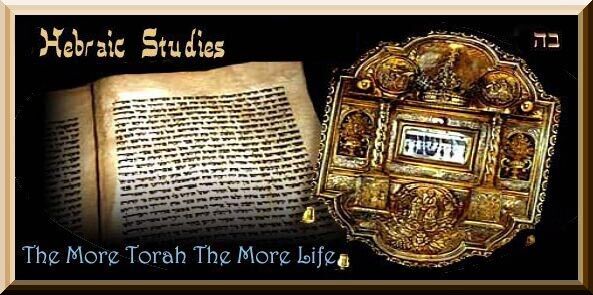Studying Parashat Beshalach
Use Google Chrome for this Web Page to load perfectly!

Please do NOT
visit this site on Shabbat or on a
Please Note: On this page I will show the four letter
blessed *“Memorial
Name” of the Almighty in Ivrit - ![]() - Y-H-V-H, which we usually pronounce as “Adonai”
or “HaShem”.
- Y-H-V-H, which we usually pronounce as “Adonai”
or “HaShem”.
*“This is My Name forever,
and this is My memorial to all generations.”
Shemot - Exodus 3:15.
Please do NOT visit this site
on Shabbat or on a
![]()

On this site I
will mostly use a version based on the “Jewish Publication Society”
Parashat Beshalach
(Exodus 13:17–17:16)
With Rabbi Reuven
Ben-Avraham.
Instant gratification,
these two words seem to be at the forefront of many minds in general today. At
least, that's what one might be led to believe based on the foods that are
consumed. I am well aware there are those who just do not have much time to eat
a good breakfast, even though you know it's the most important meal of the day?
Thus sadly for some McDonald’s comes to the rescue with some decidedly treif food on offer with in one convenient package.
Although I’m not a Luddite; I have nothing against convenience. But sometimes our quest for
instant gratification goes very much overboard and this is true in the consumer
marketplace, however it also might well be true in our encounters with the
Divine.
In this week’s (2021) Torah portion ‘Beshalach’, the Israelites have finally been freed from
Egyptian slavery, after 400 or so years of bondage and the stop-and-go negotiations
between Moses and Aaron and the Pharaoh. They have witnessed the Ten Plagues
visited upon
“![]() is my strength and
song, and He is become my salvation; this is my Elohim, and I will glorify Him;
my father’s Elohim, and I will exalt Him” Shemot – Exodus
15:2 (JPS version of the Torah
with corrections)
is my strength and
song, and He is become my salvation; this is my Elohim, and I will glorify Him;
my father’s Elohim, and I will exalt Him” Shemot – Exodus
15:2 (JPS version of the Torah
with corrections)
And they also proclaimed’
“![]() will reign for ever and ever!” Shemot – Exodus 15;18 (JPS version of the Torah with corrections)
will reign for ever and ever!” Shemot – Exodus 15;18 (JPS version of the Torah with corrections)
But such as human nature
tends to be, sadly all too soon the awe and wonder somehow suddenly wore off.
And now the Israelites were eager for another big miracle, but there was none
forthcoming. So typically like mankind, they said “OK, that was a great
trick with the sea and all, but what have you done for us lately?” We are
getting hungry and what we are eating is not that great, and we really would
like something better now”. And when it is not delivered instantaneously,
the people seems to get rather nasty. For now they
even begin to wonder if they were not really better-off if they had stayed in
“Is ![]() among
us, or not?” Shemot – Exodus 17:7
(JPS version of the Torah with
corrections)
among
us, or not?” Shemot – Exodus 17:7
(JPS version of the Torah with
corrections)
Although it is easy to
look at the behaviour of our Israelite ancestors and call them fickle; we might be quick to
criticize their readiness to change allegiances so hastily. But often we behave
in much the same manner ourselves. We pray to Elohim
for things that we feel we need, and then we are gravely disappointed when our
prayers are not answered with measurable results. When we fail to pass the
test, to get the promotion for which we have prayed, or even win a lottery, we
feel that Elohim has somehow not heard us.
I heard a story recently
about a dear lady who somehow considered herself a ‘Baalat T’shuvah’ (a
master of return) in Talmudic times,
it was used to describe repentant sinners. And she took the Talmudic injunction so seriously she began to recite
one hundred Braches – blessings every day. Perhaps she took it too
seriously. Not only did she recite the fixed blessings and Tefillah’s
found in the Siddur, she also prayed for a good parking space, enough hot water for her
shower, some extra money, and so forth.
To me, this woman's story
is representative of the “babble” that has crept into many of our
encounters with the Elohim. We are so focused on the
little things what we want from our Heavenly Father and on our desire for the
instant gratification of these requests that we fail to recognize the various
wondrous acts of Elohim, blessed be He that
constantly occur all around us. We ask why miracles no longer happen in our
world, when the truth of the matter is that we simply have forgotten how to
recognize a miracle.
The truth is that the world is full of miracles and wonders, but we take our hands and cover our spiritual eyes and what do we see, absolutely nothing.
Is it not time that we learn
that we have already seen so much good, and although times tend to go up, and
yes they do go down, but remember Elohim, blessed be
He is always with us, and He cares for you! He never leaves us, stay strong in
our faith, up hold the Torah and keep and share a
Mitzvot. And
remember a person must bless Elohim for bad tidings just as we will bless
Elohim for the good times! In our
encounters with the Divine, let us learn to cast aside our fickleness, to forgo
our longing for instant gratification, and learn to bless Elohim
for everything we have, praise Him for the big and the small things, thank Elohim, blessed be He, for all of the countless kindnesses
that He has shown to our ancestors and to all of us!
![]() Elohim, blessed be His Sanctified Name!
Elohim, blessed be His Sanctified Name!
“You can't always get what you want
… but if you try, sometimes you just might find you get what you
need”. By
Mick Jagger & Keith Richards.
Here is something extra:
I am always amazed that there are so few who actually know and understand that when Avram - Abram was born there was still another great man of faith alive. This man was his ancestor Noach - Noah who actually died when Avram was about 58 years of age, according to the “Mishnah” (for our non-Jewish readers – this is the Hebrew oral telling of the Torah). Avram as a child at various times lived with Noach and it would stand to reason that he would have been Avram’s teacher regarding the one true Elohim, blessed be He, for as we may well know from the Scriptures that Avram’s father Terach lived in the ways of the Chaldeans, including worshipping of the moon god! Thus slowly Avram, whilst he was with Noach, came to know the Creator of heaven and earth and he began to worship the Elohim of all creation! As the eldest son of the family he had the responsibility of instructing the children on spiritual matters.
Thus in Bereshit - Genesis, Avram - Abram abandons everything he has ever known in order to embrace his new faith. He seeks no proof of Elohim's greatness but accepts it at face value as told by his ancestor. When was the last time you trusted in something with blind faith? What gave you the confidence to do so?
Let us ask the following questions; “What is required of us in our relationship with Elohim?” and, “What are the consequences if we fail to fulfil our end of the bargain?”
What is the difference between what we “want” and what we “need”? Is it appropriate to ask Elohim to satisfy our “wants”? Is it appropriate to ask Elohim to satisfy our “needs”?
“You can't always get what you want
… but if you try, sometimes you just might find you get what you need”
![]()

She’ma ![]() )
) ![]() )
)
Hear O Israel, HaSHEM (![]() ) our Elohim, HaSHEM (
) our Elohim, HaSHEM (![]() )
is ONE!
)
is ONE!
Blessed be His Name, whose glorious kingdom is forever and ever.
Read Davarim (Duet) 6:5 to 9.
![]()

May Elohim bless and keep you in the palm of
His ever loving hands!
![]() Elohim, blessed be His Sanctified Name, is the
one who gave us our Life!”
Elohim, blessed be His Sanctified Name, is the
one who gave us our Life!”
Return to our MAIN PAGE or go to our Main Index
![]()

